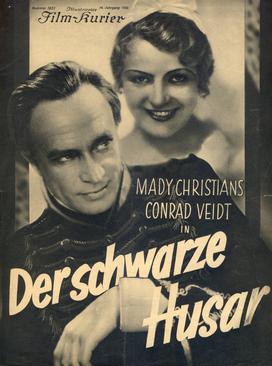
The Black Hussar is a 1932 German historical drama film directed by Gerhard Lamprecht and starring Bernhard Goetzke, Conrad Veidt, Mady Christians, and Wolf Albach-Retty. It premièred at the Ufa-Palast am Zoo on 12 October 1932, part of a whole string of 'patriotic' movies released in the late days of the Weimar Republic.

The Second Shot is a 1943 German historical drama film directed by Martin Frič and starring Gustav Waldau, Susi Nicoletti and Hana Vítová. It was shot at the Barrandov Studios in Prague.
5 June is a 1942 German war film directed by Fritz Kirchhoff and starring Carl Raddatz, Joachim Brennecke and Karl Ludwig Diehl. The film depicts the events of 1940 when German forces successfully invaded France. It was shot on location in France and Germany. Constant changes to the film, often at the request of the German military, led to large cost overruns. In November 1942, the film was banned by the Minister of Public Enlightenment and Propaganda Joseph Goebbels for unspecified reasons. It has been speculated that Goebbels thought the film was not entertaining enough or wished to avoid offending the Vichy government of France.

The Rebel is a 1932 German historical drama film directed by Curtis Bernhardt, Edwin H. Knopf, and Luis Trenker and starring Trenker, Luise Ullrich, and Victor Varconi. The film's art direction was by Fritz Maurischat. It was made by the German subsidiary of Universal Pictures, with location shooting in Austria and St. Moritz, and Zuoz, Switzerland. Interior scenes were filmed at the Tempelhof Studios. A separate English language version, The Rebel, was released the following year. The film is part of the mountain film genre.
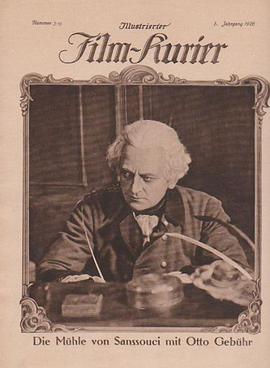
The Mill at Sanssouci is a 1926 German silent historical film directed by Siegfried Philippi and Frederic Zelnik and starring Otto Gebühr, Lissi Lind and Jakob Tiedtke. The film is part of the popular cycle of Prussian films. It premiered on 1 February 1926.

The Girl from Barnhelm is a 1940 German historical comedy film directed by Hans Schweikart and starring Käthe Gold, Ewald Balser and Fita Benkhoff. It is an adaptation of the 1767 play Minna von Barnhelm by Gotthold Ephraim Lessing.

Above All Else in the World is a 1941 German drama film directed by Karl Ritter and starring Paul Hartmann, Hannes Stelzer and Fritz Kampers. The title refers to the second line of the German national anthem. It was made as a propaganda film designed to promote Nazi Germany's war aims in the Second World War.

The Four Musketeers is a 1934 German drama film directed by Heinz Paul and starring Fritz Kampers, Paul Westermeier and Erhard Siedel. It was shot at the Terra Studios in Berlin. The film's art direction was by Robert A. Dietrich.
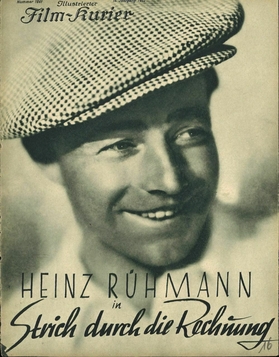
Spoiling the Game is a 1932 German comedy film directed by Alfred Zeisler and starring Heinz Rühmann, Toni van Eyck, and Hermann Speelmans. Its hero is a young cyclist who enters a race.

The Priest from Kirchfeld is a 1926 German silent film directed by Jacob Fleck and Luise Fleck and starring William Dieterle, Fritz Kampers and Dieter Melzer. It is based on the play Der Pfarrer von Kirchfeld by Ludwig Anzengruber, one of a number of film adaptations of the work.

Little Girl, Great Fortune is a 1933 German comedy film directed by E. W. Emo and starring Dolly Haas, Carl Esmond, and Adele Sandrock. It was shot at the Johannisthal Studios in Berlin. The film's sets were designed by the art director Fritz Maurischat.A separate Italian version One Night with You was also made.

Left of the Isar, Right of the Spree is a 1940 German comedy film directed by Paul May and starring Fritz Kampers, Leo Peukert and Charlotte Schellhorn.
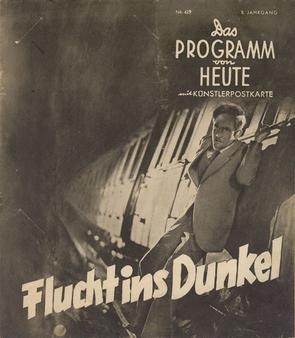
Escape in the Dark or Flight into Darkness is a 1939 German crime film directed by Arthur Maria Rabenalt and starring Hertha Feiler, Joachim Gottschalk and Ernst von Klipstein.
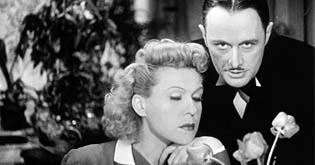
Friday the Thirteenth is a 1949 West German comedy crime film directed by Erich Engels and starring Fritz Kampers, Angelika Hauff, and Fita Benkhoff.

All Roads Lead Home is a 1957 West German drama film directed by Hans Deppe and starring Luise Ullrich, Christian Doermer and Fritz Tillmann. The film was made at the Bavaria Studios in Munich. The film's sets were designed by the art directors Willi Herrmann and Heinrich Weidemann. It was shot using Agfacolor.

The Sporck Battalion is a 1934 German drama film directed by Rolf Randolf and Theodor Loos and starring Fritz Genschow, Werner Schott and Erich Fiedler. It is based on a novel of the same name which had previously been made into the 1927 silent film The Sporck Battalion.
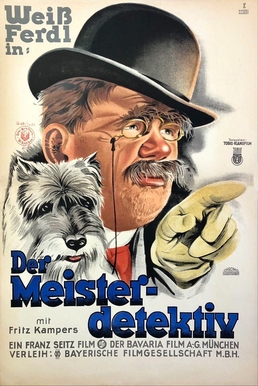
The Master Detective is a 1933 German comedy crime film directed by Franz Seitz and starring Weiß Ferdl, Ery Bos and Hans Stüwe. It was shot at the Bavaria Studios in Munich. The film's sets were designed by the art director Max Seefelder.
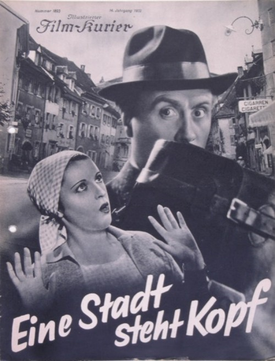
A City Upside Down is a 1933 German comedy film directed by Gustaf Gründgens and starring S.Z. Sakall, Jenny Jugo and Hermann Thimig. It is based on the 1836 play The Government Inspector by Nikolai Gogol. A separate Czech adaptation of the story The Inspector General was made the same year.

Love and the First Railway is a 1934 German historical comedy film directed by Robert Neppach and starring Jakob Tiedtke, Ida Wüst, and Karin Hardt. The plot revolves around the construction of the railway line between Berlin and Potsdam in the 1830s, the first in the Kingdom of Prussia.

Financial Opportunists is a 1934 German comedy film directed by Fritz Kampers and starring Weiss Ferdl, Sabine Peters and Hans Adalbert Schlettow. The film's sets were designed by the art directors Gustav A. Knauer and Alexander Mügge. The title was a well-known phrase to attack Jews, and was one of the first openly anti-Semitic films produced under the Nazi regime.



















